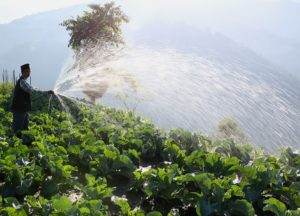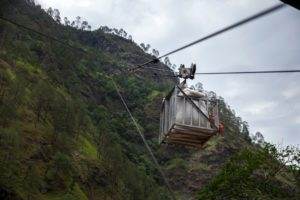Most of us want to make greener choices in our lives in response to the climate crisis. And it’s heartening to see governments and companies finally starting to make bolder commitments to reducing carbon emissions.
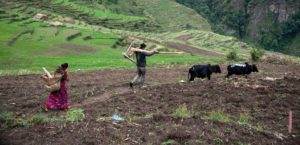
Most of us want to make greener choices in our lives in response to the climate crisis. And it’s heartening to see governments and companies finally starting to make bolder commitments to reducing carbon emissions.
But is there anything we can do to help people whose lives have been affected by the damage already done to the climate? Especially smallholder farmers who rely on what they can grow for food and income, but whose crops repeatedly fail due to changed weather patterns?
The answer is definitely ‘yes’. And now, building on a proven approach perfected in partnership with other farming communities in Nepal, we plan to help many more rural Nepalese farmers Turn the Tables on Climate Change and build brighter futures for their families. This is our five-point plan.
Farming techniques that overcome climate change
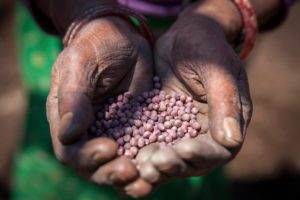
Drought, floods and new pests are causing crops to fail. So it starts with more resilient seeds, better suited to the new weather patterns. These grow into more resilient crops. Add training in new agricultural techniques, and farmers can develop their skills in managing soil, water and nutrients, to grow crops more effectively, even in such challenging conditions. And with access to modern weather information systems, they can better plan what to plant and when in tune with the weather.
Water that creates abundance
Today, farmers waste hours every day hiking long trails to fill buckets with just enough water to drink and cook with. And with no water supply to irrigate fields, the fate of their crops is in the hands of the increasingly erratic rainfall.
But even in a remote, mountainous region like this, it’s possible for communities to have water on tap for drinking, agriculture, and for their farm animals. Using solar energy and some clever engineering, water from rainfall and mountain springs can be captured, stored, and distributed to homes and fields on demand. The result is bigger harvests producing enough to feed the family and extra to sell at market.
Market access that boosts income
Right now, farmers rarely make enough money to survive. So, many men must travel to cities and other countries to work in poorly paid jobs as day labourers. But with the right help, the people here can move from farming to survive, to farming to earn a decent living.
IT services can help farmers keep track of local commodity prices so they can buy farming supplies at the best price, and know the right times to take their produce to market to get the highest price.
But trips to market are hazardous and time consuming, carrying heavy loads down treacherous mountain tracks prone to landslides. So getting goods to market will be a made much quicker and safer, with innovative new cable car systems: gravity goods ropeways, which use gravity to safely shuttle heavy goods up and down the mountain.
Business skills and new income streams
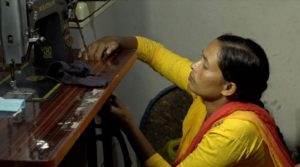
Facing prejudice and inequality, women have to work harder than anyone else and have a far poorer quality of life. By equipping themselves with new business skills, they have an equal chance to achieve their ambitions. Farmers can build greater financial stability by developing more than one source of income. And with boosted financial understanding, they’ll be able to take advantage of new support services, so they can grow their businesses and thrive.
Confidence that empowers women
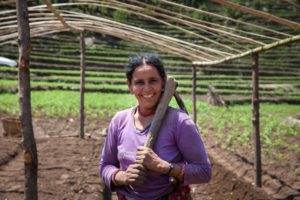
Championing women in society to unlock their potential is a crucial driver in making all of this possible. With leadership training they can transform gender roles, participate in business, and have equal say in the future of their communities.
This is our ambitious plan in Nepal, but we’re also working with farming communities facing the effects of climate change all around the world.
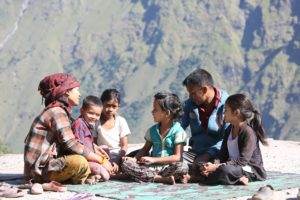
And in our long experience together we’ve learned so much – pioneering innovative approaches that are helping people adapt to changing weather patterns and thrive in their new climate realities. Like helping communities to re-green deserts in drought ravaged Sudan. Or working with coffee growers in Peru to protect and work in harmony with the Amazon rainforest. And helping farmers use solar energy to pump water from deep underground to irrigate parched fields in Zimbabwe.
With your support plans can turn into action, and farming families can build better futures. Donate now and make more amazing things happen.
